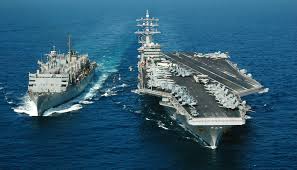carrier
英 [ˈkær.i.ər]
美 [ˈker.i.ɚ]
- n. [化学] 载体;运送者;带菌者;货架
- n. (Carrier)人名;(英)卡里尔;(法)卡里耶
使用频率:

记忆方法
将“carrier”分解为“car”和“ry”,想象一辆车(car)能够承载(ry)货物或乘客,这样就容易记住它是指承载或携带东西的人或物体。
以上内容由AI生成, 仅供参考和借鉴
英语词源
- carrier (n.)
- late 14c., agent noun from carry (v.). Meaning "person or animal that carries and disseminates infection without suffering obvious disease" is from 1899; genetic sense is 1933. As a short form of aircraft carrier it dates from 1917. Carrier pigeon is from 1640s.
权威例句
- 1. He had returned to England in an aircraft carrier no less.
- 他竟然坐航空母舰回的英格兰。
- 2. Deliveries are made by common carrier or van line.
- 货物运输采用普通货车或厢式货车。
- 3. The haulage company was a carrier of machine parts to Turkey.
- 该公路货运公司负责将机械零件运往土耳其。
- 4. He stooped to pick up the carrier bag of groceries.
- 他俯下身去提装着食品杂货的购物袋。
- 5. All his worldly goods were packed into a neat checked carrier bag.
- 他的所有家当都装在一个干净的方格图案手提袋里。